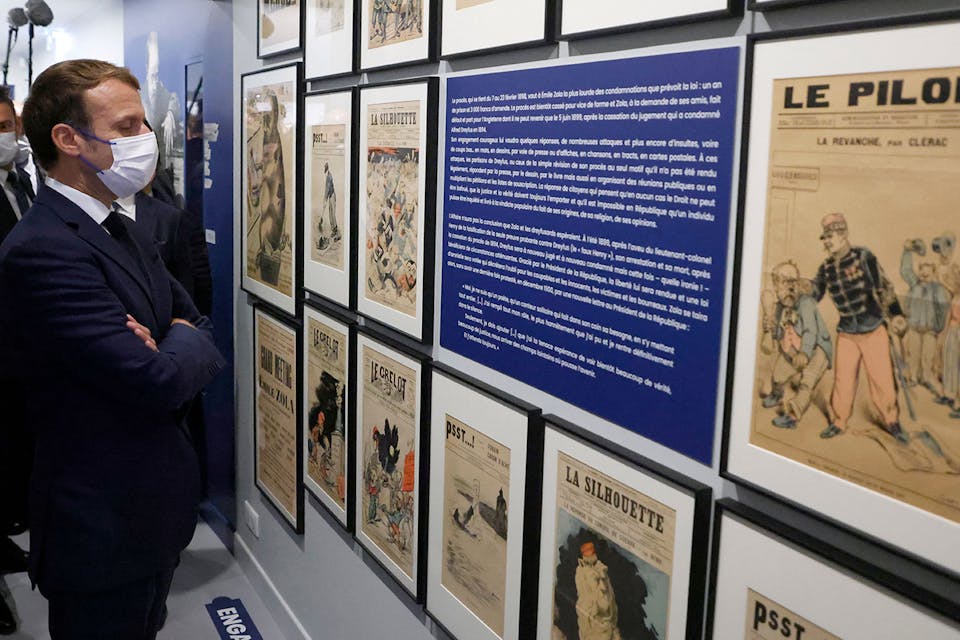
January 31, 2022
Why Are Emmanuel Macron and Eric Zemmour Fighting Over the Dreyfus Affair in 2022?
Recent controversies in the French media suggest that wounds opened by the infamous trial over a century ago have yet to heal.
On October 28 of last year, the French president Emmanuel Macron spoke at a ceremony marking the opening of his country’s new Dreyfus Museum. In his speech, he adhered to the classic French republican “love of language and . . . taste for truth and justice,” and made clear that he sees the museum as the embodiment of those ideals. His remarks and his overall investment of political capital in the event demonstrate the importance he attaches to the museum, and to the history it attempts to convey. And he’s not alone: the Dreyfus Affair is considered one of the founding moments of the French Republic. Macron’s speech at the opening of the museum, and some recent controversies in the French media, suggest that it is a wound that has not entirely healed.
The Affair began in 1894, when a French army officer named Alfred Dreyfus was accused of passing military secrets to the Germans on the basis of a torn-up note—known as the bordereau—that a maid found in a wastepaper basket at the German embassy. He was the only Jew working for the French general staff at the time, and the case soon became fodder for the French anti-Semitic press. In 1895, Dreyfus was convicted of treason, stripped of his rank, and exiled to Devil’s Island off the coast of French Guyana. The next year, the newly appointed head of military intelligence reported that he had found evidence exonerating Dreyfus, and was immediately reassigned to a far less desirable command in Tunisia. The case was later reopened, and eventually the truth came out: the real perpetrator was Ferdinand Walsin-Esterhazy, an officer of aristocratic lineage; Dreyfus had been deliberately framed; and the upper echelons of the military had been involved in the coverup. In 1906, Dreyfus was fully exonerated; he went on to serve in the army, fought in World War I, and died in 1935.
It’s difficult to overestimate the effects of this episode on French politics and society; in the American context, it could be compared to the combined trials of Dred Scott, Alger Hiss, and O.J. Simpson. To simplify somewhat, those who insisted that Dreyfus be exonerated, the Dreyfusards, believed France should continue to be a secular democracy and supported the Third Republic; those who believed him guilty, the anti-Dreyfusards, were religious or social conservatives, and often monarchists. Even in the 1930s, the gulf between the two camps remained politically relevant. The case still resonates as a symbol of past sins, much as various incidents of the persecution of black Americans do in the U.S.